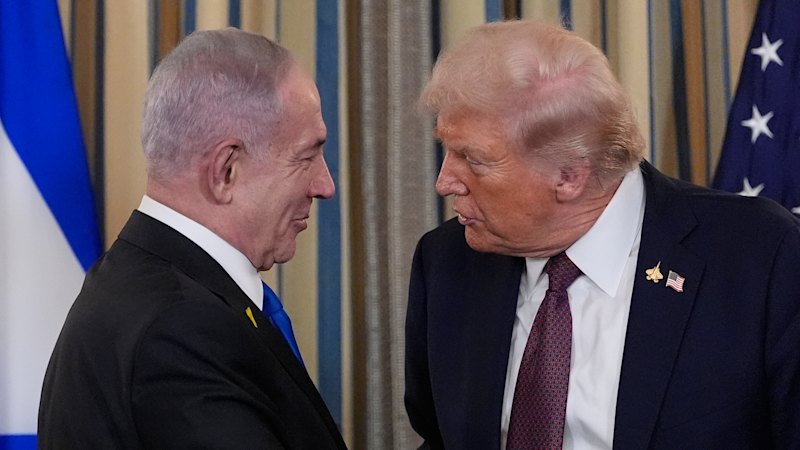
U.S. President Donald Trump and Israeli Prime Minister Benjamin Netanyahu have unveiled a new proposal aimed at ending the ongoing conflict in Gaza. The plan, which includes a 20-point framework for establishing governance in the war-torn region, remains contingent on the acceptance of the terms by Hamas, the militant group currently in control of the area.
During a news conference held at the White House on October 30, 2023, Trump outlined the core components of the plan. It proposes the formation of a temporary governing board, which would be headed by Trump himself, alongside former British Prime Minister Tony Blair. The plan stipulates that no residents would be required to vacate Gaza, and it calls for an immediate cessation of hostilities, should both parties agree to the terms.
A critical element of the proposal includes the release of all remaining hostages within 72 hours of Israel’s acceptance. Trump emphasized that Israel would receive the “full backing” of the U.S. to take necessary actions should Hamas reject the peace deal. “I think we are beyond very close,” Trump remarked, underscoring the urgency of the situation. “We’re not quite finished. We have to get Hamas.”
In response to the proposed terms, Netanyahu issued a stark warning. “If Hamas rejects your plan, Mr. President, or if they supposedly accept it and then do everything to counter it, then Israel will finish the job by itself,” he stated. “This can be done the easy way or it can be done the hard way, but it will be done.”
Appealing directly to the Palestinian people, Trump urged them to take ownership of their future by embracing the peace proposal. The U.S. president’s remarks reflect an ongoing push for a resolution as the region continues to face significant turmoil.
Apology to Qatar and Diplomatic Tensions
During the same press briefing, Netanyahu extended a formal apology to Qatar’s Prime Minister, Sheikh Mohammed bin Abdulrahman Al Thani, for a recent Israeli airstrike targeting Hamas officials in Qatar. The strike had generated backlash from Arab leaders and prompted rare criticism from the U.S. government regarding Israel’s military actions. The White House characterized the conversation between Netanyahu and the Qatari leader as a “heart-to-heart” exchange.
As part of the apology, Netanyahu expressed regret for the unintentional death of a Qatari serviceman during the operation, highlighting the sensitive nature of regional relations. He affirmed that Israel would refrain from conducting similar strikes in the future, a gesture aimed at mending ties with Arab nations during a critical juncture.
Netanyahu’s apology comes as Israel faces increasing isolation on the international stage, with long-time allies expressing growing concern over its military strategies. The Israeli Prime Minister’s governing coalition is also perceived as more fragile than ever, prompting speculation about the extent of U.S. support moving forward.
Hamas’s Response and Future Prospects
As the situation unfolds, Hamas is believed to be holding 48 hostages, with 20 of those confirmed alive by Israeli authorities. The group has demanded the cessation of hostilities and a complete withdrawal of Israeli forces from Gaza as prerequisites for any permanent ceasefire agreement. While a Hamas official indicated that the group has been briefed on Trump’s plan, they have yet to receive an official offer from Egyptian and Qatari mediators.
Trump’s discussions regarding the U.S. proposal took place last week with various Arab and Islamic leaders during the U.N. General Assembly. Notably, the current plan does not advocate for the expulsion of Palestinians from Gaza, a stance Trump had previously suggested earlier in the year.
As diplomatic efforts continue, the key question remains whether the newly proposed framework will gain traction among the involved parties, particularly with Hamas’s longstanding resistance to disarmament. The international community watches closely as potential negotiations progress, emphasizing the need for a sustainable and peaceful resolution to the conflict.






